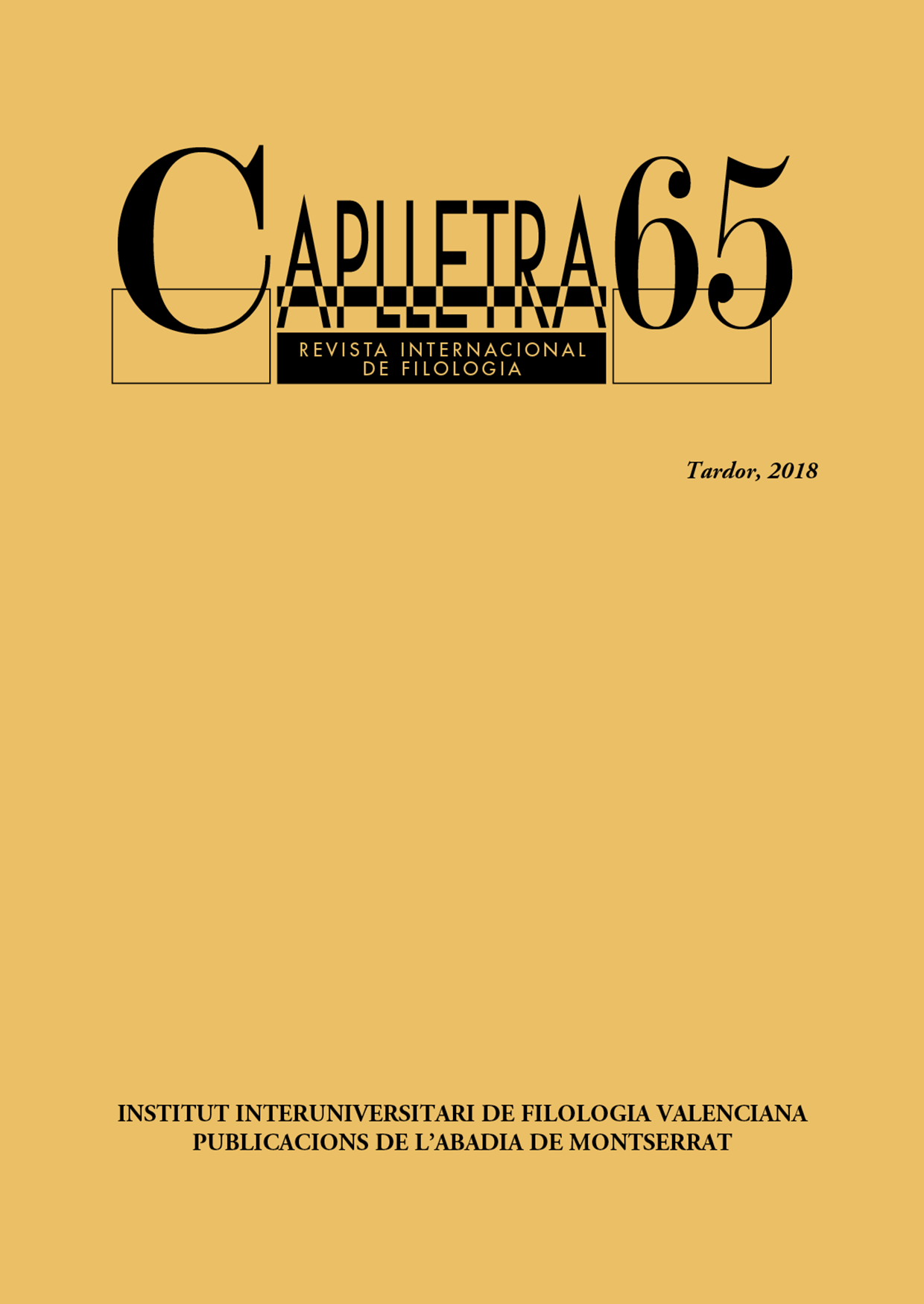Dislocated Temporalities: Immigration, Identity, and Sexuality in Najat El Hachmi’s «L’últim patriarca»
DOI:
https://doi.org/10.7203/caplletra.65.12619Palabras clave:
Najat El Hachmi, Catalan literature, immigration, temporality, anal sex, psychoanalysis, Jean Laplanche Resumen
Resumen
Recent Catalan criticism has focused on place and space, as well as immigration, but has overlooked temporality. Yet migrations are not only a matter of space (of demographic movements and geographical relocations), but also of time: immigration questions the idea of origins and the possibility of a shared future, and problematizes the rhythms of everyday life. Temporality, in fact, is a key axis in the formation of identities and in cultural conflicts, not just regarding the uses of the past and the projection of societies towards the future, but also in relation to the normative uses of the body. The coexistence of asynchronous temporalities provoked by immigration is a factor in both cultural and psychic conflict. Najat El Hachmi’s novel L’últim patriarca (2008) is an excellent example of these phenomena. Here the circular temporality, based on the repetition of cycles, of Morocco’s traditional society comes to a halt in the failure of the narrator’s father to reproduce patriarchal domination in Catalonia. The novel roots this experience in modern referents through a dialogue with the Catalan literary tradition, and questions the idea of temporality understood as succession of generations by problematizing biological reproduction and gender subordination and through the shattering effects of anal sexuality. This article offers an integrated analysis of these issues by reference to psychoanalysis.
 Descargas
Descargas
Descargas
Publicado
Cómo citar
-
Resumen754
-
PDF 591
Número
Sección
Licencia
El autor o autora que dirija un trabajo a la redacción de Caplletra para ser publicado tiene que ser la persona titular legítima de los derechos de explotación. La legitimación para la publicación del trabajo tiene que incluir también las imágenes, las tablas, los gráficos y otros materiales que puedan complementar el texto, con independencia de si es su autor o autora.
Copyright. Al publicar el trabajo en la revista, el autor o autora cede a Caplletra. Revista Internacional de Filologia los derechos de explotación (reproducción, distribución y comunicación pública), tanto para la edición impresa en papel como para la versión electrónica.
Todos los trabajos publicados en Caplletra se encuentran bajo una licencia Creative Commons del tipo Reconocimiento-NoComercial-SinObraDerivada 4.0.
RESPONSABILIDAD
Caplletra. Revista Internacional de Filologia no se identifica necesariamente con los puntos de vista sostenidos en los trabajos que publica.Caplletra. Revista Internacional de Filologia declina toda responsabilidad derivada de cualquier vulneración eventual de los derechos de propiedad intelectual que pudiera ser llevada a cabo por los autores o autoras.






